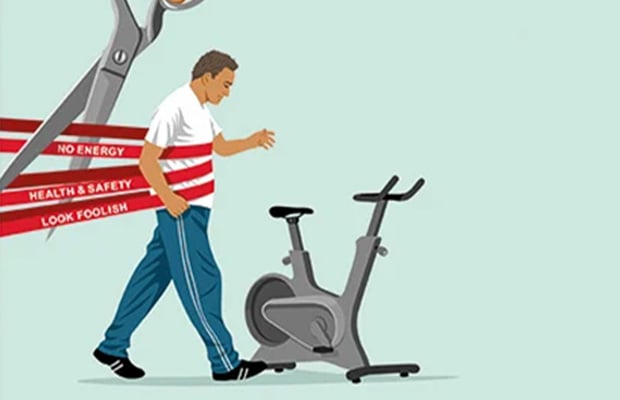What is a TIA?
A transient ischaemic attack (TIA), also known as a mini stroke, is a medical emergency. You should call 999 if you think you or someone else is having one.
A TIA happens when a blood clot briefly blocks a blood vessel, disrupting the blood supply to part of the brain.
How long does a TIA last?
This is the same way that a stroke caused by a blood clot (an ischaemic stroke) happens, but the symptoms are short-lived, usually only lasting between several minutes to an hour or so.
What puts you at risk of having a TIA?
Like a stroke, factors that increase your chance of having a TIA include:
Want to get fit and healthy?
Sign up to our fortnightly Heart Matters newsletter to receive healthy recipes, new activity ideas, and expert tips for managing your health. Joining is free and takes two minutes.
I’d like to sign-up
Symptoms of a mini stroke
The symptoms of a TIA include:
- weakness or loss of feeling on one side of the body e.g. in the face, arm or leg
- difficulty speaking or finding words
- loss of vision
- unsteadiness or dizziness.
TIAs can be a warning sign that a more severe stroke may be coming.
The risk of stroke is highest in the first few weeks after a TIA. This is why it is important to seek medical attention as soon as possible, even if you feel fine afterwards.
Diagnosing a TIA stroke
After calling 999 and making sure the person is comfortable, it can be useful to photograph or video them to show how they are being affected. Often symptoms have ended by the time paramedics arrive. A video of the symptoms will help doctors make a diagnosis.
Tests done to help investigate a TIA can include blood tests, heart rhythm monitoring (an electrocardiogram or ECG) or a brain scan.
Treatment for a TIA stroke
Treatment for a TIA typically includes blood-thinning medicines, such as aspirin or clopidogrel.
If your doctors think an irregular heartbeat might be responsible for creating the blood clot that caused the TIA, they may give you anticoagulant medicines.
In some cases, surgery may be necessary to clear a narrowed blood vessel in the neck, which can cause a TIA or stroke.
Your doctors will also suggest important lifestyle changes that can help reduce your risk of having a stroke in the future such as quitting smoking, eating a healthy diet and keeping physically active.
Help after a TIA stroke
A TIA can leave people feeling tired and worried about the future, but you are not alone:
What to read next...








